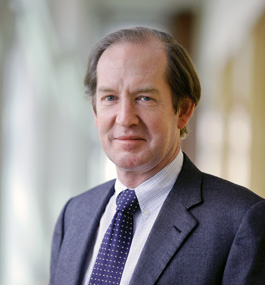A World in Fear, and a Dangerous Embrace of Isolationism

Mike Lovett
Paul Jankowski
by Jarret Bencks
Political winds were shifting. Nations were turning inward, toward nationalism. It was 1933, and the world was edging closer to war, again.
Paul Jankowski, the Raymond Ginger Professor of History, assays this critical mass of attitudes and events in his new book, “All Against All: The Long Winter of 1933 and the Origins of the Second World War” (HarperCollins, 2020).
Here, Jankowski discusses that historical moment, and its echoes in today’s national and international uncertainties.
What key events were bringing the world closer to war in the winter of 1932-33?
Hitler came to power in January 1933, and Japan left the League of Nations that winter. Both of these were intensely nationalistic events, full of “go it alone” sentiment. The Italians were developing plans to invade Abyssinia, now Ethiopia. The Soviet Union’s five-year plan — forced industrialization involving enormous sacrifice and suffering — was proceeding apace. In the U.S., President Franklin D. Roosevelt did not want the U.S. to become entangled in any kind of world order. He certainly wasn’t going to risk his domestic recovery program on commitments abroad.
What role did the Great Depression play?
It played a part, but it was far from the sole factor. The idea of American isolationism didn’t wait for a world economic depression to announce itself; it was already ascendant in the 1920s.
The global depression had a very powerful effect in accentuating nationalist sentiment in various countries, but it wasn’t responsible for it. This mentality, in my view, can lie dormant. It’s there, it’s latent, and it can spring to life depending on the circumstances.
How did the outcome of World War I influence the rise of nationalism and isolationism?
The First World War bred nothing but unhappiness. It yielded embitterment and discontent among the victors, not to mention the losers.
Both the individuals who fought and the nations that were involved believed their victories had been thrown away, that they had somehow been swindled or had suffered in some other way.
I call it the nationalization of resentment. It ennobles the suffering of individuals. No leader wanted to preach internationalism; it was too dangerous a message.
Was this resentment exploited by specific leaders or countries?
It’s not necessarily a right-wing or fascist message. It’s conveyed in many different ways. Adolf Hitler presented himself as a victim — an ordinary German soldier, a victim of World War I. But there are many ways of nationalizing resentment, and the nationalization of resentment enabled people to identify their individual plight with that of their country.
After Herbert Hoover’s initial, vigorous reaction to the 1929 stock market crash, he took to blaming the country’s economic problems on the world at large, arguing the world depression that developed was really beyond his power — it wasn’t his fault.
To justify his economic plans, Joseph Stalin said Russia had always been the victim of more-advanced countries, and would be again if they were not ready for war.
In the 1932 election, Roosevelt said nothing about foreign affairs, at a time when the Nazi Party had reached its peak in Germany. He knew it was not what his prospective voters wanted to hear about.
Are there apt comparisons between what happened in 1932-33 and today?
This belief that the world is a hostile place and that the nation is a sanctuary against the rest of the world bears some resemblance to today. And the turning away from an attempted world order is, I think, a valid parallel.
There was a post-Cold War attempt at a new U.S.-led world order based on free trade, globalization and human rights. In recent years, we’ve seen that effort fall apart and prove about as short-lived as the new world order that was supposed to follow the First World War.
The perception of the world as hostile is turning up today in various ways. It is obvious in the Brexit movement in Britain and in other movements all over Europe. And it is very obvious to me in the chaotic, impulsive approach to foreign policy that President Donald Trump betrays.
